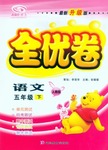题目内容
It wasn’t until nearly a month later ________ I received the manager’s reply.
A. sinceB. whenC. asD. that
练习册系列答案
 ABC考王全优卷系列答案
ABC考王全优卷系列答案
相关题目
题目内容
It wasn’t until nearly a month later ________ I received the manager’s reply.
A. sinceB. whenC. asD. that
 ABC考王全优卷系列答案
ABC考王全优卷系列答案